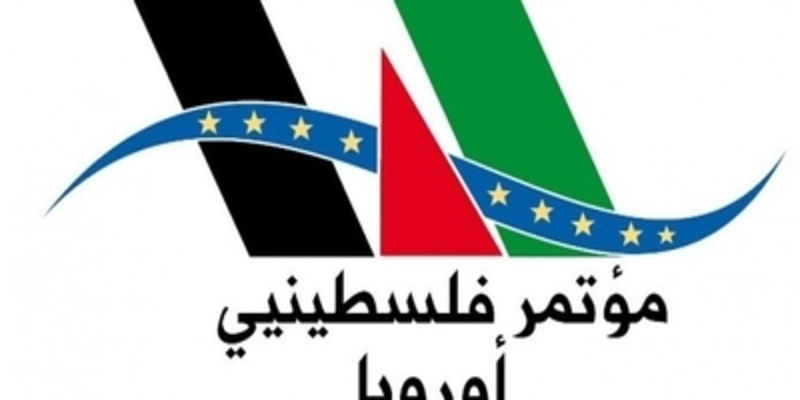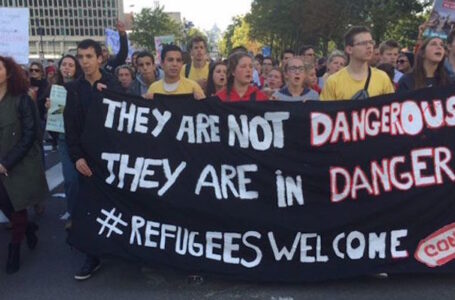Italy’s Problem with Palestinian Terrorist Financing

by Maria Zuppello
Special to IPT News
March 15, 2022
Italy faces an increasing risk of illicit financing activities for Palestinian terrorist groups. Italian prosecutors recently launched an investigation into the bank transfers of the country’s largest Palestinian organization. Yet some Italian politicians appear to be blind to the threat, even funding Italian non-governmental organizations that engage with Palestinian terrorist organizations.
As a group of Italian and European parliamentarians recently highlighted, several Palestinian terrorist organizations, including Hamas and the Popular Front for the Liberation of Palestine (PFLP), are increasingly using Italy as a hub for their European operations. Its strategic Mediterranean location and extensive political support make it a magnet for terrorist lobbying and financial activities.
Last October, Israeli Defense Minister Benny Gantz designated Palestinian NGOs Addameer and Al Haq as terrorist groups acting on behalf of PFLP. Italy’s Vice Foreign Minister Marina Sereni issued a press release expressing concern about this designation.
“Italy believes that the role of civil society organizations in promoting human rights and democratic values is essential and indispensable,” Sereni stated, reiterating the Italian government’s ambiguity on Palestinian networks.
Two months later, the Parliamentary Committee for Human Rights in the World, chaired by Laura Boldrini, former president of the Italian House of Representatives, held a videoconference hearing in which both the organizations were represented. This committee aims to monitor Italy’s commitment to promoting human rights globally while respecting all peoples and cultures. However, during the hearing, Addameer representative and Al Haq director Shawan Jabarin defined Israel as “racist” and “colonialist” without anybody objecting. Jabarin is not just anyone. In 1985, he was convicted in Israel of recruiting and arranging training for PFLP operatives.
The event prompted a response from the Israeli embassy in Italy: “Instead of providing terrorist organizations a voice, the Committee should send a strong message to Italy, asking it to stop funding terrorist groups and cut all ties with them.
The Italian government’s ambiguous relationship with Palestinians dates back to the 1970s when an unwritten agreement enabled Palestinian terrorists to transit through Italy with weapons in exchange for a cease-fire on Italian targets. It is referred to as the Moro agreement, named after the then-foreign minister, Aldo Moro.
Although other European politicians have negotiated with Palestinian terrorists, according to historian Valentine Lomellini, author of the fascinating book The Moro Agreement, “the Italian deal was archetypal in terms of its longevity and broad participation by the country’s ruling class. It was an ‘Italian deal’ involving the Christian Democrat and Socialist leaderships, some magistrates, and the Republic’s Presidency. Italy’s pro-Arab stance, in addition to giving rise to the Moro agreement, is also its most important legacy.”
This legacy has evolved into an opaque network of organizations operating in Italy over the years.
The Palestinians in Europe Conference (PEC) Foundation is highly active in Italy, where two board members, Zeinab Khalil and Mohammed Hannoun, live. The annual conference is frequently used to plan delegitimization efforts against Israel, from promoting the one-state paradigm to supporting the Boycott, Divestment and Sanctions (BDS) movement. The PEC is sponsored by the UK-based Palestinian Return Centre (PRC), a Palestine advocacy group tied to Hamas and the Muslim Brotherhood.
In 2010, Israel’s defense minister designated PRC as an illegal organization because prominent Hamas members such as Majed Al-Zeer, Zaher Birawi, and Majdy Aqil are among its leaders. Some of them also hold, or have held, positions in various Muslim Brotherhood-affiliated organizations in the United Kingdom.
PEC President Amin Ghazi Abu Rashed, who was designated as a European Hamas member by Israel, shared statements in 2017 from the Italy-based Europeans for Al-Quds, since they express a similar political agenda. Europeans for Al-Quds is a federation of dozens of European pro-Palestinian organizations, whose president is the same Hannoun from the PEC board. Palestinian individuals and organizations appear to be inextricably intertwined in Europe, with Italy serving as a major crossroads.
The Italian Parliament expressed no concerns about hosting Hannoun’s Feb. 17 press conference discussing the Europeans for Al-Quds annual report concerning the alleged Israeli violations in Jerusalem throughout 2021. Meanwhile, Italian prosecutors are investigating another Hannoun association, the Genoa-based Charitable Association of Solidarity with the Palestinian People (ABSPP). This dichotomy between legal investigations and political ideology fuels the opacity of Palestinian networks in Italy.
The Italian UniCredit Bank suspended ABSPP bank accounts last November after several questionable activities were reported to the National Financial Intelligence Unit. Significant fund movement and money transfers to people who are on European blacklists prompted the shutdown.
According to Italian journalist Massimiliano Coccia, authorities suspected ABSPP was part of “Hawala 2.0,” a larger informal scheme of payments to launder money through Palestinian charities that bought durable products and food supplies at a lower cost. Yet the full price was recorded in the balance sheets with the vendors’ knowledge. The cash differential was used to pay Hamas members and buy weapons.
A 2011 Israel Defense Forces report revealed that ABSPP was active in the Union of Good (UOG) in Italy, and had ties to Hamas leadership in Damascus and the Gaza Strip. The UOG, chaired by Yusuf Al-Qaradawi, a radical Islamist cleric who has long been suspected of being a top leader in the Muslim Brotherhood organization. The Union of Good is a global alliance of Islamist charities designated in 2008 by the United States for conducting Hamas fundraising activities.
“The primary purpose of this activity is to strengthen Hamas’ political and military position in the West Bank and Gaza, including by diverting charitable donations to support Hamas members and the families of terrorist operatives and dispensing social welfare and other charitable services on behalf of Hamas,” said the U.S. Treasury Department.
Several posts on Hannoun’s social media accounts illustrate his views, including a video of an ABSPP rally last May in Milan, in which the protesters called the State of Israel “illegitimate and terrorist.” Radical preachers can be seen in his posts as well, such as antisemitic Jordanian Islamic scholar Sheikh Ahmed Shahrouri. In 2020, he asked, “Is it okay for us to talk about the coronavirus because it is ‘hot news and forget about the Jews, who are more dangerous than AIDS, coronavirus, cholera, and all the diseases of this world?”
ABSPP’s initiatives, with the support of many leftist Italian politicians, have helped fuel radicalism in the Palestinian cause. The association invited extremist preachers such as Sheykh Riyad Al Bustanji and Muhammad Moussa Al-Sharif, known for their sermons against Jews and Christians and in favor of Palestinian child martyrs.
“I have brought my daughter to Gaza, so that she can learn from the women of Gaza how to bring up her children on jihad, martyrdom-seeking, and the love of Palestine, Allah willing,” Al Bustanji said in a 2012 television interview. Hannoun was among the organizers of an infamous 2017 Milan sit-in against Israel. Protesters sang jihadist and antisemitic chants such as, “Khaybar, Khaybar, Oh Jews, Muhammad’s army will return.” In addition to invoking a slaughter of Jews by Mohammed’s army, the chant is a battle cry used by Hamas and Hizballah when they attack Israelis.
Although Italian law provides for the incarceration and fines of those who commit religious or racial hate crimes, even in a public protest, these events went unpunished due to Italy’s increasingly schizophrenic relationship with Palestinian organizations.
According to a 2020 Parliamentary hearing, the Italian Agency for Development Cooperation (AICS) indirectly financed Palestinian terrorist groups with €4 million. The money went to Italian non-governmental organizations operating in Palestine and that are partners of Al-Haq, an NGO that Israel claims is a PFLP arm. “With direct financing of terrorist activities being a crime, it is clear that allowing terrorist organizations or their sympathizers, or having the same administrators, to manage substantial international funds confers upon them an illegitimate stature,” the final document said.
Italy has a solid financial framework to counter illegal transactions. But Palestinian networks will flourish as long as politicians remain silent. As a result, illicit funds from Italy will likely continue to flow to Europe and Palestine, and terrorists in suits, as described by the Israeli government, will pretend to teach democracies human rights lessons.
 Maria Zuppello is an Italian investigative reporter based in Brazil and an expert on the crime-terror nexus. She is the author of the book “Tropical Jihad.
Maria Zuppello is an Italian investigative reporter based in Brazil and an expert on the crime-terror nexus. She is the author of the book “Tropical Jihad.















